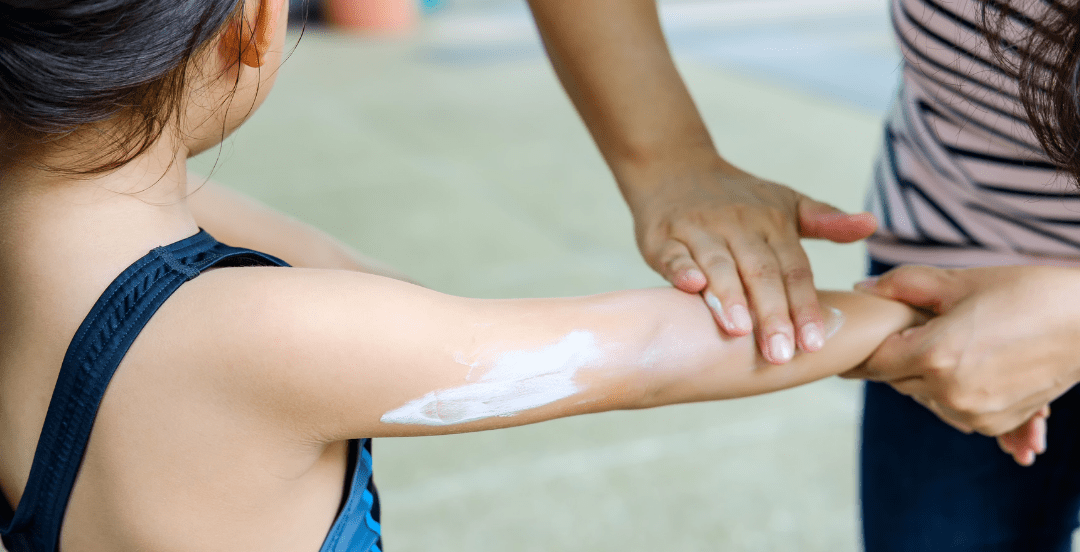Using Expired Sunscreen is a Big Deal, Here’s Why
- Category: Recipes & Wellness, Dermatology
- Posted On:

With the impromptu arrival of the sun’s rays in spring and summer, you may reach into the cabinet for last year’s sunblock and slather it on, confident you’re protected from the sun (Spoiler alert: You may not be). Even if you do use sunscreen year-round, buying in bulk can leave the bottle on your shelf for far longer than is safe.
Unfortunately, sunblock can and does expire. And once this happens, its ability to protect you from the sun’s rays dramatically declines. Thankfully, you can stay safe from exposure to the sun’s rays by learning about expired sunscreen — and when you should restock to get the best protection possible.
How Long Until Sunscreen Expires?
Of those manufactured in the United States, modern sunscreen formulas can stay stable for up to three years, retaining their ability to protect your skin from UV rays. Manufacturers can test their formulas to prove their shelf life and avoid having to put an expiration date on their products.
Otherwise, they will be clearly labeled with a date that indicates when the product starts to lose its potency. If your sunscreen does not have an expiration date on the bottle, label it with the purchase date, so you know when to throw it out and buy a replacement.
Can Sunscreen Expire Faster than the Date on the Bottle?
Your sunscreen could go bad faster than normal if stored in a hot location, like your glovebox or at the edge of the pool. Keep it in a cool location between reapplications to ensure your sunscreen remains effective through its intended shelf life.
How Do You Know Your Sunscreen is Expired?

Although not always true, in many cases, you can tell your sunscreen has gone bad with a quick glance. Here are a few indicators of bad sunscreen:
- The formula looks watery and separated
- It has a different consistency from when you first bought it
- It has an odd or foul smell
When you notice that your sunscreen is either past the expiration date or shows these signs, you should replace it with a new bottle. Continuing to use the expired sunscreen is unsafe and will not provide you with the right level of protection from UV rays. Once sunscreen expires, its specified SPF protection level is no longer valid. In fact, the sunscreen might leave you completely unprotected from the sun and could even cause a bad skin reaction.
What are the Best Practices for Buying, Storing, and Using Sunscreen?
You can ensure that your sunscreen always provides an adequate amount of protection from harmful UV rays by following the best practices for buying, storing, and using this product.
- When buying sunscreen, always look for water-resistant formulas with an SPF rating of 30 or above. You should also look for sunscreen formulas that boast broad-spectrum protection from the widest range of UV rays.
- Store sunscreen in a cool, dark place in between uses. Check expiration dates, or markdown your own, and replace your sunscreen as needed to avoid having expired products on hand. Look at the consistency of your sunscreen before each application as well to verify it is still good.
- Wear sunscreen daily, whether the sun comes out often or hardly at all where you live. If you stay out for several hours at a time, you should reapply your sunscreen every two hours to renew its protection.
By following these best practices, and avoiding expired sunscreen, you can ensure your skin remains protected from harmful UV rays year-round.